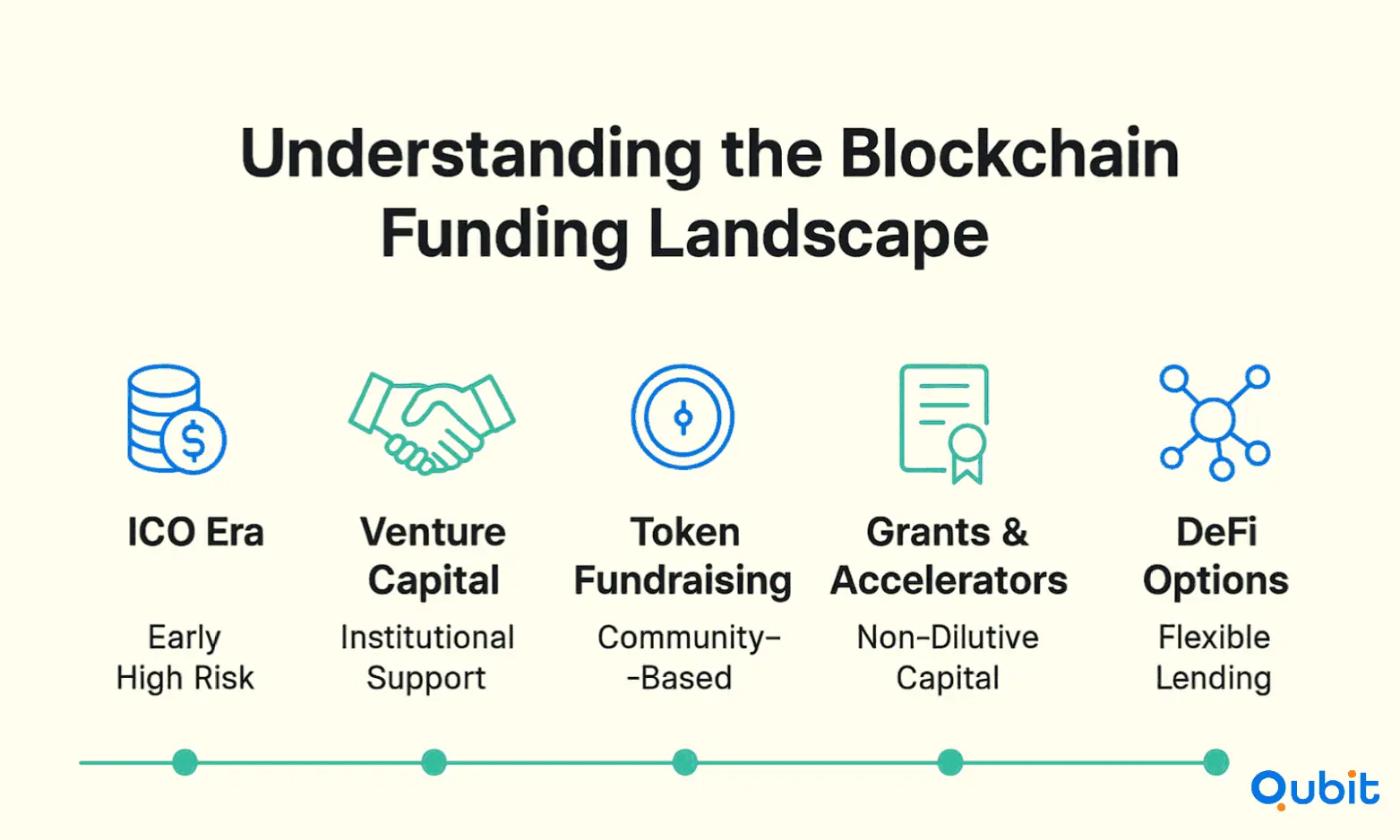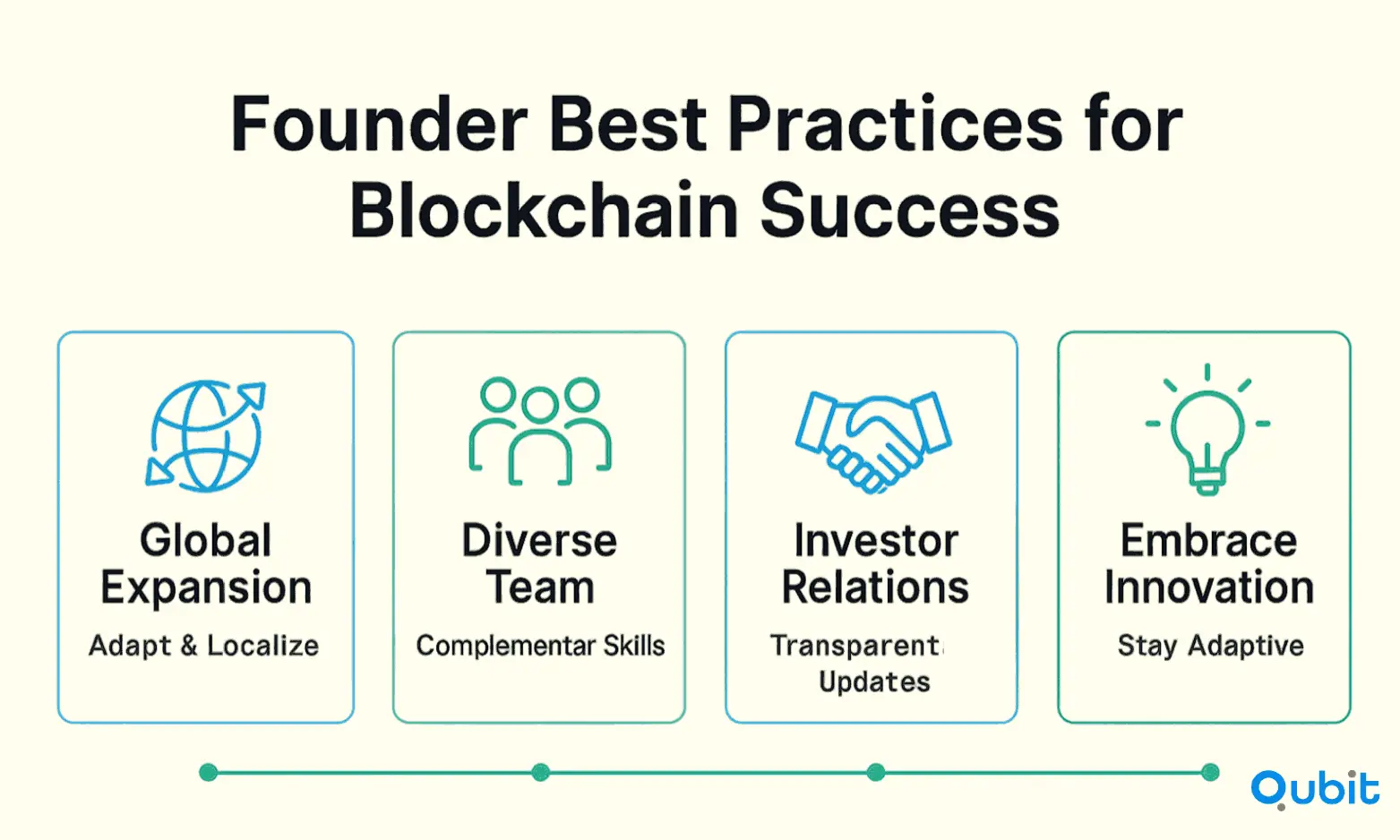Blockchain start-ups face unique challenges when it comes to securing capital, but they also have access to innovative funding models tailored to the industry. From traditional venture capital to token-based fundraising, the options are diverse and evolving. This article explores actionable strategies to help blockchain entrepreneurs attract investment, while addressing regulatory considerations and risk management.
Within your analysis, a closer look at blockchain venture funds reveals the spectrum of support available from investors active in the blockchain and Web3 space. These funds often specialize in early-stage projects, offering not just financial backing but also strategic guidance.
Understanding the Blockchain Funding Landscape
The blockchain funding landscape has evolved dramatically over the past decade. Early on, Initial Coin Offerings (ICOs) dominated, allowing projects to raise millions from global investors with little more than a whitepaper. While ICOs opened the floodgates for innovation, they also attracted scams and regulatory crackdowns.
Today, the environment is more nuanced, with a blend of traditional venture capital, token-based fundraising, grants, accelerators, and decentralized finance (DeFi) options. Investors are looking for real-world utility, strong teams, regulatory compliance, and sustainable business models. The most successful blockchain start-ups are those that can navigate this complex terrain, combining multiple funding sources and building long-term relationships with their backers.
Techniques to Secure Capital for Blockchain Startup

Venture Capital: Attracting Institutional Investors
Venture capital remains a cornerstone for blockchain start-ups aiming to scale quickly and build credibility. To stand out, founders should focus on:
- Demonstrating a strong, experienced founding team
- Presenting a clear value proposition and addressable market
- Showcasing evidence of user traction and strategic partnerships
- Highlighting regulatory readiness and compliance measures
A compelling pitch, warm introductions through industry networks, and a track record of technical and business execution can make the difference in securing VC backing.
Token-Based Fundraising: ICOs, IDOs, and STOs
Token-based fundraising remains a distinctive feature of the blockchain space. While the wild west days of ICOs are largely over, token launches—whether through Initial Coin Offerings (ICOs), Initial DEX Offerings (IDOs), or Security Token Offerings (STOs), continue to be powerful tools for raising capital and building engaged communities.
ICOs allow start-ups to raise funds by selling utility tokens directly to the public, often before a product is fully developed. IDOs take this a step further by launching tokens on decentralized exchanges, providing immediate liquidity and access to a global investor base. STOs, which are regulated offerings of tokenized securities, appeal to more risk-averse investors and comply with securities laws.
For a successful token sale, founders must develop a robust whitepaper that clearly explains the project’s vision, technology, tokenomics, and use cases. Community engagement is critical; active participation on platforms like Discord, Telegram, and X (formerly Twitter) can build excitement and trust. Regulatory compliance is non-negotiable—projects must adhere to know-your-customer (KYC) and anti-money laundering (AML) requirements, and consult legal experts to navigate the complex landscape of securities laws.
Hybrid fundraising models, combining equity and token warrants, are gaining popularity. This approach appeals to both traditional investors seeking ownership and crypto-native investors looking for upside through token appreciation.
Grants and Non-Dilutive Funding
Grants from blockchain foundations, ecosystem funds, and government programs are an increasingly important source of non-dilutive capital for early-stage projects. Organizations like the Ethereum Foundation, Solana Foundation, and Polygon offer grants to projects that contribute to their ecosystems, whether through core protocol development, tooling, or applications.
Applying for grants requires a clear articulation of your project’s value to the ecosystem, a detailed roadmap, and evidence of technical capability. While the process can be competitive and time-consuming, grants provide funding without requiring equity or token dilution. They also often come with mentorship, technical support, and opportunities for networking with other builders.
Government grants and innovation funds are also on the rise, particularly in regions aiming to become blockchain hubs. Start-ups should monitor local and international grant opportunities and be prepared to demonstrate how their project aligns with broader economic or social goals.
Angel Investors: Strategic Early-Stage Support
Angel investors can play a pivotal role in the early stages of a blockchain start-up, offering not just capital but also mentorship and industry connections. To attract angel investment:
- Engage in online communities and share regular progress updates.
- Build genuine relationships through industry networking and events.
- Demonstrate passion, technical expertise, and a clear understanding of your market.
Crowdfunding and Community Funding
Crowdfunding platforms like Kickstarter, Indiegogo, and Republic have become popular avenues for blockchain start-ups to raise capital directly from the public. This approach not only provides funding but also validates market demand and builds an early user base.
In the blockchain space, community-driven token models take crowdfunding a step further. By issuing tokens to early supporters, start-ups can turn users into stakeholders, fostering deeper engagement and loyalty. Decentralized Autonomous Organizations (DAOs) are also emerging as vehicles for community funding, allowing collective decision-making and resource allocation.
DeFi and Decentralized Lending
Decentralized Finance (DeFi) platforms are revolutionizing access to capital for blockchain start-ups. Through DeFi lending protocols, start-ups can borrow funds by collateralizing crypto assets, often with flexible terms and lower barriers to entry than traditional banks.
Liquidity pools, yield farming, and staking mechanisms can also be leveraged to raise capital or generate operational revenue. For example, a start-up might launch a liquidity mining program, incentivizing users to provide liquidity in exchange for token rewards.
While DeFi offers exciting opportunities, it also comes with risks. Smart contract vulnerabilities, market volatility, and regulatory uncertainty must be carefully managed. Founders should conduct thorough due diligence on DeFi platforms, use audited contracts, and maintain robust risk management practices.
Legal Readiness and Regulatory Compliance
Legal and regulatory readiness is essential for building investor confidence. Start-ups should:
- Incorporate properly and secure intellectual property
- Engage legal counsel for token classification, securities, and tax issues
- Comply with KYC, AML, and data privacy requirements
- Maintain transparent disclosures and governance frameworks
Building a Sustainable Business Model
Investors are increasingly focused on sustainability and long-term viability. Founders should articulate how their project will generate revenue, retain users, and create value for token holders or shareholders. Well-designed tokenomics, market validation through user growth or partnerships, and a clear path to profitability are all critical for attracting serious investment.
Strategic Partnerships and Ecosystem Alliances
Forming strategic alliances with established blockchain protocols, technology providers, or industry consortia can boost credibility and open new funding channels. Ecosystem alliances can also lead to grants, joint ventures, and co-marketing opportunities, positioning your start-up for accelerated growth.
Leveraging Media and Thought Leadership
A strong media presence and thought leadership can attract both capital and talent. Effective strategies include:
- Publishing articles in respected industry publications
- Participating in podcasts and speaking at conferences
- Engaging with journalists and industry influencers
- Contributing to open-source projects and governance forums
Navigating Market Cycles and Timing
Timing is crucial in the blockchain sector. Raising capital during bullish market conditions can increase your chances of success, but it’s also important to build resilience for downturns. Maintaining a lean operation, securing non-dilutive funding, and building a loyal community can help your start-up weather market volatility.

Global Expansion and Localization
Expanding internationally can unlock new sources of capital and user growth. This may require adapting your product, messaging, and compliance practices to local markets, as well as leveraging regional investor networks, grants, and crypto communities.
Building a Diverse and Resilient Team
A strong, diverse team with complementary skills in technology, business, and compliance is a major asset. Highlighting your team’s experience, diversity, and commitment in investor materials can set your start-up apart and increase your credibility.
Ongoing Investor Relations and Transparency
Maintaining strong investor relations is key for long-term support. Regular updates, transparent reporting, and open communication build trust and can lead to follow-on funding, referrals, and strategic support. Treating investors as partners and seeking their input can create a sense of shared purpose and alignment.
Embracing Innovation and Adaptability
The blockchain sector moves quickly, and successful start-ups are those that remain adaptable and open to innovation. Staying engaged with industry trends, participating in developer communities, and being willing to pivot your strategy as needed can help you stay ahead of the curve and attract forward-thinking investors.
Conclusion
Securing funding in the crypto space demands a strategic approach that combines a clear vision, regulatory compliance, and a compelling pitch deck. Throughout this blog, we’ve highlighted actionable strategies to help blockchain start-ups thrive in a competitive environment. Using data-driven insights and tailored approaches, founders can better manage risks and align their fundraising efforts with market expectations.
If you're ready to secure your next round of funding, we at Qubit Capital are here to assist. Our Fundraising Assistance service is designed to support your journey toward success. Let’s work together to turn your vision into reality.
Key Takeaways
- Blockchain fundraising leverages innovative tokenization and decentralized models.
- A clear vision, a strong team, and rigorous regulatory compliance are critical.
- Diverse models, including ICOs, IEOs, and STOs, provide tailored solutions for capital raising.
- Effective risk management and transparent communication are essential drivers of investor trust.
- Recent trends demonstrated by Iris Energy, Avalanche, and Bridge underscore rapid industry growth.
Frequently asked Questions
What are the best fundraising strategies for blockchain startups?
Successful blockchain startups often rely on diverse fundraising methods such as Initial Coin Offerings (ICOs), Security Token Offerings (STOs), Initial DEX Offerings (IDOs), grants, and venture capital. Combining these approaches with a well-crafted pitch deck and a clear project vision can significantly enhance their chances of securing funding.


 Back
Back



